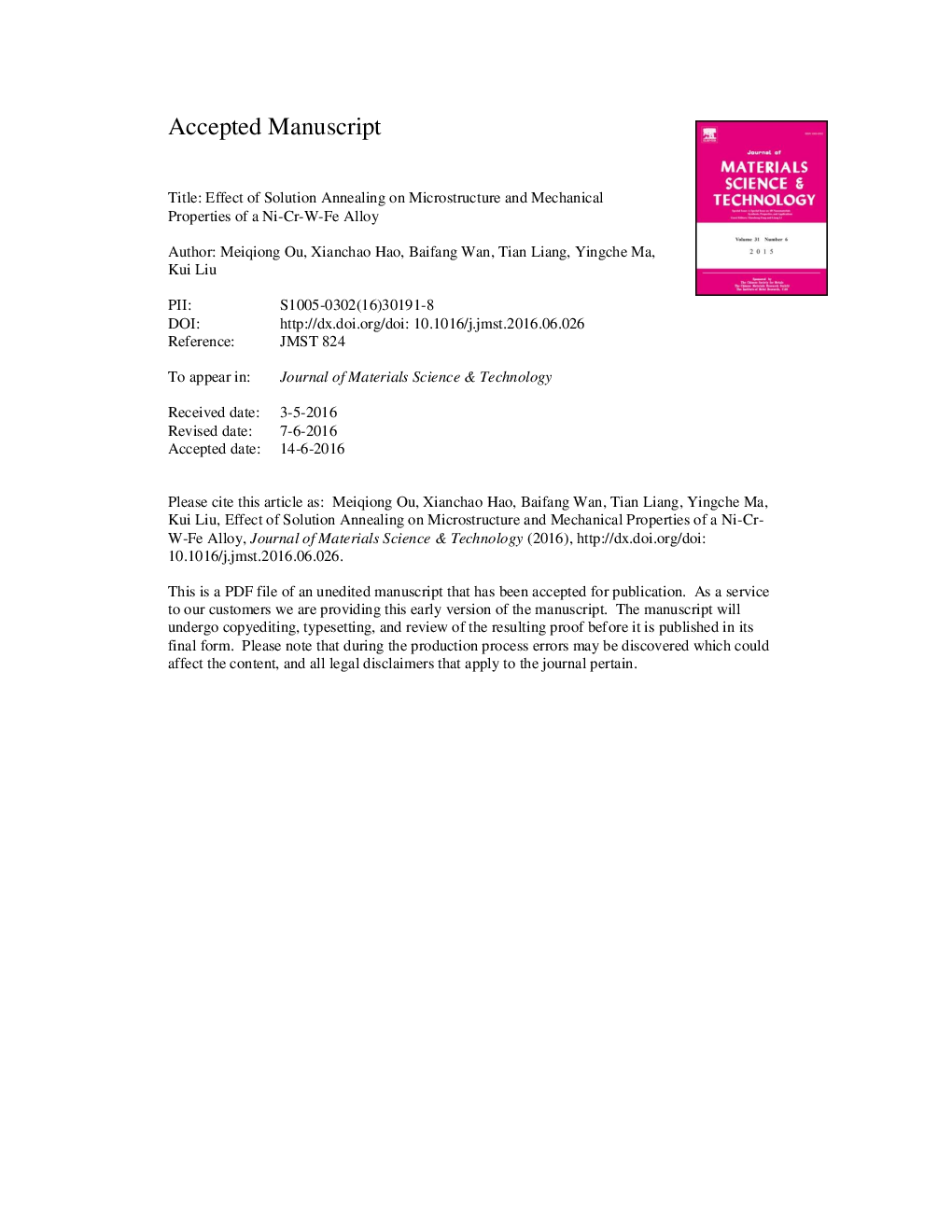| Article ID | Journal | Published Year | Pages | File Type |
|---|---|---|---|---|
| 7952166 | Journal of Materials Science & Technology | 2017 | 17 Pages |
Abstract
The effect of solution annealing on the microstructure and mechanical properties of a Ni-Cr-W-Fe alloy developed for advanced 700 °C ultra-supercritical power plants was investigated. Test samples in this study were subjected to different solution treatments and the same aging treatment (at 760 °C for 1 h). When solution annealing temperature was elevated from 1020 °C to 1150 °C, the stress-rupture life at 750 °C/320 MPa was increased from 60 h to 300 h, the stress-rupture elongation was enhanced from 12% to 17%, and the elongation of the tensile at 750 °C was improved from 11% to 24%. All tensile and stress-rupture samples displayed an intergranular dimple mixed fracture. Intergranular micro-cracks had a great relationship with the morphology of grain boundary carbides. Most carbides retained the morphology of globular shape and continuous thin plate. After tensile and stress-rupture tests, a few carbides were converted into lamellar. The results showed that intergranular micro-cracks were easier to form at continuous thin plate carbides than at globular shape carbides. Lamellar carbides hardly caused the nucleation of micro-cracks. Besides, grain boundaries sliding and elements diffusion during stress-rupture tests led to the formation of precipitate free zones, which accelerated the extension of micro-cracks and influenced the stress-rupture life.
Related Topics
Physical Sciences and Engineering
Materials Science
Materials Chemistry
Authors
Meiqiong Ou, Yingche Ma, Xianchao Hao, Baifang Wan, Tian Liang, Kui Liu,
